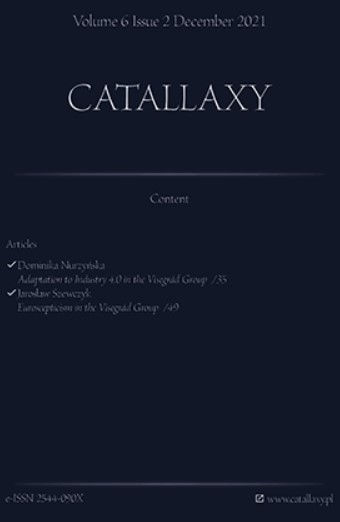Euroscepticism in the Visegrád Group
Euroscepticism in the Visegrád Group
Author(s): Jarosław SzewczykSubject(s): Economic policy, Government/Political systems, Political behavior, Politics and society, Comparative politics, EU-Approach / EU-Accession / EU-Development
Published by: Instytut Badań Gospodarczych
Keywords: Visegrád Group; V4; Euroscepticism; Visegrád Group Euroscepticism; V4 Euroscepticism;
Summary/Abstract: Motivation: Euroscepticism is an phenomenon which is becoming increasingly important. EU countries ought to enhance cooperation in the face of major challenges. Despite challenges facing the European Union too little attention has been devote exploration Euroscepticism with particular reference to the V4 countries. Aim: The main objective of this study was to examine citizen’s Euroscepticism in the countries of the Visegrád Group. Accordingly, in the theoretical section were introduced definition of Euroscepticism, its classification and present differences in delineating of the phenomenon. Instigate an attempt to indicate the sources of Euroscepticism in the V4 countries and its characterize. The theoretical part was the basis for the empirical part in which was performed analysis results of Eurobarometer Public Opinion Researches. Materials and methods: Quantitative (basic statistical analysis and ALSCAL algorithm) methods were used in this investigation. The research data was drawn from Eurobarometer opinion polls commissioned by the European Commission. Results: The study indicated a varied level of Euroscepticism among the citizens of the Visegrad Group countries and the source of the whole phenomenon is strongly rooted in the sphere of migration. The Czechs are the most anti-European society from the V4 group. Research on Euroscepticism must also be carried out at the level of the societies of individual states, and not only of political parties.
Journal: Catallaxy
- Issue Year: 6/2021
- Issue No: 2
- Page Range: 49-63
- Page Count: 16
- Language: English

